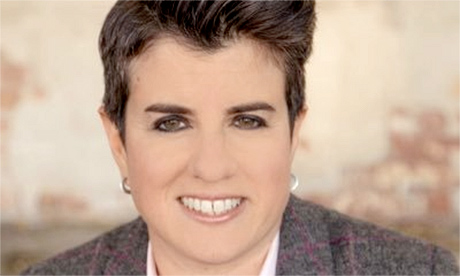In mid-February, NCR ran two stories that seemed tangentially related, but are actually profoundly connected.
The first piece told the story of Alana Chen, a 24 year-old woman who died by suicide in early December 2019 in the Colorado wilderness.
Just four months earlier, Alana, a deeply devout Catholic, had told The Denver Post about undergoing conversion therapy at the urging of two Catholic priests and the Sisters of Life, a traditionalist order of nuns.
In the wake of her death, Alana’s family has very publicly blamed the church for her suicide.
The second report, by NCR national correspondent Heidi Schlumpf, covered the story of two high school teachers who were forced to resign from Kennedy Catholic High School in Seattle after they became engaged to their same-sex partners.
Hundreds of students staged walks-out from their classrooms and sit-ins in their hallways, while many of their parents and community members protested in front of the offices of the Seattle Archdiocese.
Both Alana and the students of Kennedy Catholic are emblematic of how much promise many young adults hold for the church and how senselessly the institution harms them and squanders their gifts in its entrenched need to protect homophobic doctrines that have little basis in lived reality.
One of the reasons Alana’s story hit me so hard was that I see so much of myself in her.
Like Alana, I fell in love with the church at age 14.
I spent an inordinate amount of time talking to priests and hanging around the parish.
I devoted my Friday nights to Eucharistic adoration.
I dedicated a lot of my time to serving and befriending the homeless in social action ministry.
Like Alana, I also realized in high school that I wasn’t heterosexual.
And I, too, have struggled with a lifetime battle with depression, including periods of suicidal ideation.
Alana came under the influence of a very conservative priest, Fr. David Nix, whom she came out to while in high school.
She wrote in her journal that the priest ordered her to not reveal her sexual orientation to her family because they were too liberal and would be too loving and accepting.
In 2015, around the same time that Alana began college, Denver Archbishop Samuel Aquila brought in the Sisters of Life to offer counselling and spiritual direction to nearby colleges.
According to a story in the Colorado Hometown Weekly, the sisters begged Alana’s mother to allow her daughter to see a therapist who specialized in conversion therapy, a claim that the sisters now deny.
When her mother refused, Alana went forward with counselling at a Catholic Charities site with services that address “same-sex attraction, or what some people call homosexuality, gay, lesbian, LGBTQ, etc.”
The program was co-sponsored by Courage, a Catholic organization that encourages LGBTQ people to treat their sexuality like an addiction.
“She was told she could never have a relationship with a woman, and it was killing her,” Alana’s mother said in an interview.
Like Alana, I was blessed to have a supportive mother. Unlike her, I attended a Catholic high school with teachers who were formed by the ideals of Vatican II.
They taught us first and foremost about the dignity of the human person, the primacy of individual conscience and the preferential option for the poor.
But for the grace of my Catholic high school and one religion teacher in particular, my story might have ended the way Alana’s did. Continue reading
Additional reading
News category: Analysis and Comment.




